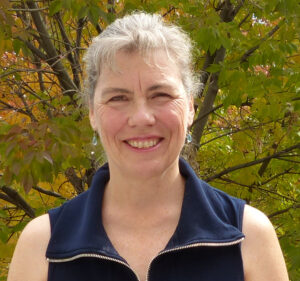by Rona | Jan 29, 2021 | KPFA, Podcasts, Radio Shows
Listen now to the show on February 1, 2021 on @KPFA.org— 94.1FM, at 2PM.
My guest, Veronique Mead, reports: Dr. Vincent Felitti, co-investigator of the original and most well known ACEs (adverse childhood experiences) study spent over 25 years running a weight loss clinic. His team found that trauma is a risk factor for type 2 diabetes and also for bigger bodies. “Obesity,” it turns out, is a “biomarker.” Bigger bodies are an indication of stressful events in the past and a physiology that is no longer regulating in an optimal way for current circumstances.” (Wickrama, 2017; Felitti, 2010).” Veronique Mead says, “There is a profound and deeply shaming stigma assigned to larger bodies or having type 2 diabetes (T2D) in our culture.”
We’ll talk about how to reduce shame and blame and deepen our understanding of the connection between adverse experiences and disease.
 Veronique Mead was an Assistant Professor of Family Medicine and practicing physician at the New Hampshire-Dartmouth Family Practice Residency program when she changed careers and retrained as a Somatic Trauma Therapist. For the past 2 decades she has been integrating the science of adversity into a new model for making sense of chronic illness and has pulled together a database of more than 12,000 references. She also draws from her personal journey of gradual recovery from disabling chronic fatigue syndrome and emphasizes how effects of trauma are not psychological as is still often mistakenly believed. Veronique shares the science on her blog, ChronicIllnessTraumaStudies.com
Veronique Mead was an Assistant Professor of Family Medicine and practicing physician at the New Hampshire-Dartmouth Family Practice Residency program when she changed careers and retrained as a Somatic Trauma Therapist. For the past 2 decades she has been integrating the science of adversity into a new model for making sense of chronic illness and has pulled together a database of more than 12,000 references. She also draws from her personal journey of gradual recovery from disabling chronic fatigue syndrome and emphasizes how effects of trauma are not psychological as is still often mistakenly believed. Veronique shares the science on her blog, ChronicIllnessTraumaStudies.com
by Rona | Jul 10, 2019 | Announcements, Appearances, KPFA, Podcasts, Radio Shows
Intimate partner violence (IPV) is violence or aggression that occurs in a close relationship and affects millions of people in the US each year.
Have you experienced Intimate partner violence (IPV)? If so you are not alone! About 1 in 4 women and nearly 1 in 10 men have experienced contact sexual violence, physical violence, and or stalking, by an intimate partner during their lifetime, and reported some form of IPV-related impact. (Center for Disease Control and Prevention)
Listen now to the 7/15/19 show on About Health on KPFA.org, 94.1FM, to learn more about IPV and who is most at risk. There is help out there for you or a loved one.
You deserve to be safe!
 Guests:
Guests:

Brigid McCaw, MD, MS, MPH, FACP was the Medical Director of the nationally recognized Family Violence Prevention Program at Kaiser Permanente, Northern California from 2001 until retiring from KP April 2019. She has conducted research and published on developing a healthcare response to family violence; the physical and mental health effects of intimate partner violence; and adverse childhood experiences (ACE’s) and trauma and resiliency informed care. Dr. McCaw received her MD and MS from the UC Berkeley-San Francisco Joint Medical Program, and her MPH from UC Berkeley School of Public Health. She completed an internal medicine residency at UC Davis, and was in clinical practiced at the Kaiser Permanente, Richmond Medical Center. She is a Fellow of the American College of Physicians and member of the Forum on Global Violence Prevention, National Academy of Medicine. She has enjoyed living in and raising her family in the SF Bay area.
 Michiko Scott is an MSW candidate at the School of Social Welfare at UC Berkeley while working as a medical assistant at Kaiser Permanente, Oakland Medical Center. She is also an intimate violence (IPV) survivor who overcame various challenges as an immigrant single mother of five children. In the 1990s, she encountered healthcare professionals who facilitated the process of freeing her from abusive situations. She found the calling to spread awareness of the significant role of the healthcare system in bringing IPV victims and their families to safety and in educating them about adverse health outcomes of IPV. In 2005, Michiko received training as an IPV crisis counselor and a public speaker at Stand! Against Domestic Violence, in Contra Costa County. When she worked at the women’s health clinic at Kaiser Richmond, she joined the Family Violence Prevention Program committee. For an undergraduate honor’s thesis, she researched traumatic brain injury in IPV survivors. Michiko is passionate about inspiring IPV victims and survivors to transform their lives by sharing her lived experience of finding healing and her life’s purpose.
Michiko Scott is an MSW candidate at the School of Social Welfare at UC Berkeley while working as a medical assistant at Kaiser Permanente, Oakland Medical Center. She is also an intimate violence (IPV) survivor who overcame various challenges as an immigrant single mother of five children. In the 1990s, she encountered healthcare professionals who facilitated the process of freeing her from abusive situations. She found the calling to spread awareness of the significant role of the healthcare system in bringing IPV victims and their families to safety and in educating them about adverse health outcomes of IPV. In 2005, Michiko received training as an IPV crisis counselor and a public speaker at Stand! Against Domestic Violence, in Contra Costa County. When she worked at the women’s health clinic at Kaiser Richmond, she joined the Family Violence Prevention Program committee. For an undergraduate honor’s thesis, she researched traumatic brain injury in IPV survivors. Michiko is passionate about inspiring IPV victims and survivors to transform their lives by sharing her lived experience of finding healing and her life’s purpose.
Resources:
24 hour: 1-800-799 SAFE (7233)
English: 415.924.6616 / Linea de apoyo en español: 415.924.3456 / ManKind: 415.924.1070
Marin Youth Services: 415.526.2557 Monday – Friday, 9am-5pm
24-Hour, Toll-Free Crisis Line: 1-888-215-5555
CDC: www. cdc.gov:
Safety Alert: Computer use can be monitored and is impossible to completely clear. If you are afraid your internet usage might be monitored, call the National Domestic Violence Hotline at 1−800−799−7233 or TTY 1−800−787−3224. Users of web browser Microsoft Edge will be redirected to Google when clicking the “X” or “Escape” button.
by Rona | Aug 15, 2018 | Announcements, KPFA, Podcasts, Radio Shows
Listen now to today’s show (8/20/18) on “About Health” KPFA 94.1FM
 The ACE’s study is one of the largest investigations conducted to assess associations between childhood maltreatment and later-life health and well-being. The study is a collaboration between the Centers For Disease Control (CDC) and Kaiser Permanente’s Health Appraisal Clinic in San Diego.
The ACE’s study is one of the largest investigations conducted to assess associations between childhood maltreatment and later-life health and well-being. The study is a collaboration between the Centers For Disease Control (CDC) and Kaiser Permanente’s Health Appraisal Clinic in San Diego.
How have the adverse experiences of your childhood impacted your physical and emotional health as an adult? Some steps in healing is understanding and untangling what happened, talking about the trauma, and learning resiliency skills. When a child is acting out in school, or an adult is abusing drugs or alcohol we can ask, “What happened to her, instead of what’s wrong with her.”
Guests:
Lisa Frederiksen is the author of hundreds of articles and 11 books, including “If You Loved Me, You’d Stop!,” “Addiction Recovery: What Helps, What Doesn’t,” and “Secondhand Drinking: the Phenomenon That Affects Millions.” She is a national keynote speaker with over 30 years speaking experience, consultant, and founder of BreakingTheCycles.com. She has spent more than 15 years studying 21st century brain research in order to write, speak, and consult on a range of brain-related topics, including: ACEs, toxic stress, trauma, substance use disorders, secondhand drinking, mental illness, brain development, and addiction treatment and recovery. Some of her consulting has been overseas in countries such as Kenya, Slovenia, and Mexico. Lisa is an active member of the ACEs Connection~Resilient Sac Community.
Wendie Skala, BSN, MS. When she first became a nurse she specialized in intensive care and emergency nursing. Wendie flew for Stanford Life Flight for 10 years and honed her skills in prehospital transport of critically injured patients. She joined the Air Force Reserve in 1999 and achieved the rank of Lt. Col. while serving 7 deployments overseas in support of OPERATION IRAQI AND ENDURING FREEDOM. Along with transporting wounded warriors, she assumed command and control roles and functioned as the Chief Nurse for air operations in Afghanistan, and she earned her Masters’ Degree in Military Science. In 2009, she took on the role as the Injury Prevention Coordinator for Kaiser Permanente’s first trauma center in South Sacramento. There she implemented the Sacramento Violence Intervention Program that provided services for shot, stabbed, and almost assaulted to death victims of violence along with her other work preventing motor vehicle crashes and older adult falls. Some of the programs she championed in the community included the Alternatives to Violence Program and Standing Up Resilient Sac, an ACEs Connection Collaborative. In her role at Kaiser Permanente, Wendie worked with law enforcement, schools, non-profits, and government agencies to educate about ACEs and Trauma Informed Care. She has presented nationally on the subject and is a contributing author and educator of the American Trauma Society’s Injury Prevention Course. Currently, Wendie is Adjunct Faculty at Samuel Merritt’s School of Nursing in Sacramento and continues to work with ACEs Connection and Resilient Sac.
Resources:
Nadine Burke Harris, MD is the author of the book “the deepest well, Healing the Long-Term Effects of Childhood Adversity.


 Guests:
Guests:
 Michiko Sco
Michiko Sco